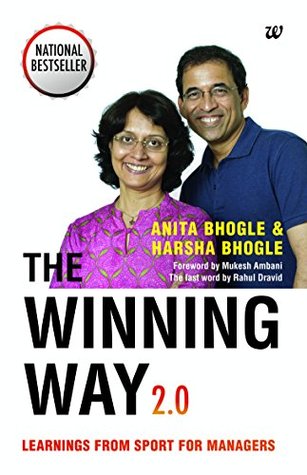More on this book
Kindle Notes & Highlights
The Australian cricketer Michael Clarke was dropped in 2005, a year after an outstanding debut in international cricket. In most places, it would have been viewed as a major setback, but interestingly that very day Mark Waugh said, ‘I said he’d be a captain in years to come and I still think he will be … he’s got a great cricket brain. It’s certainly not the end of the world for Michael Clarke, he’s just got to get back and enjoy himself.’ Darren Lehmann wrote in The Daily Telegraph that Clarke’s sacking would make him a better player, just as it did for the Waugh brothers. ‘It’s not the worst
...more
Much later Clarke agreed, ‘As much as you hate getting dropped, it certainly gave me some time to re-assess.’
pertinent
That is the reason why success stories are so well-documented while failure is strictly limited to post-mortems within the organisation.
While the truth is that failure in fact gets analysed a lot more than success, it is often with the intention of putting the blame on persons, processes or even the environment or market conditions, rather than learning from it.
Rahul Dravid often talks about the number of times leading players like him and Sachin Tendulkar have failed. If 50 is a benchmark for success, and that is a batting average that the best aspire to have, then between them they managed it 218 times; out of 615 innings. So, admittedly, by a fairly high bar set, they failed 397 times. And yet, they are regarded as legends and that is because they made the good times count. Life isn’t measured a failure at a time but over a career and the 218 successes counted for much more than the 397 failures!
I’ve missed more than 9000 shots in my career. I’ve lost almost 300 games. Twenty-six times I’ve been trusted to take the game winning shot and missed. I’ve failed over and over and over again in my life. And that is why I succeed. —Michael Jordan3
Around
slump?
pale
was battling away with a bad back against a strong Pakistan team at Chennai in 1999. He was eventually out 17 short of the target and India lost by 12 runs. Many years later, we asked Wasim Akram, then captain of the Pakistan team, about his thoughts during such a tense match. ‘I knew that if we got Tendulkar out we would win the game even if only three were needed to win. I knew India would lose the game in the dressing room itself the moment he was out.’
Businesses too can become overly dependent on large clients or suppliers, or indeed, even single brands, leaving them in a vulnerable position.
sneer
jolt
‘Unlike in the US, we don’t believe in the experimental model and are fatalistic about failure, instead of learning from it,’
smile, ‘He may not be surrounded by girls any more but he has remained relevant.’5
lumbering
indulge
there is no element of surprise in their game.
A team of champions pulling in different directions can’t become a champion team whereas a team pulling together is better than the sum of its parts.
quo
doomed
f...
This highlight has been truncated due to consecutive passage length restrictions.
hobbled
perseverance,’
camaraderie.
prophecies,
cliché
deteriorate.’
He says the three most important reasons for this are, that the team develops a winning habit, it builds confidence and wins attract talent since everyone loves to work with a winning team.
Resilience,
Abhinav Bindra echoes this same need to be resilient when he says, ‘I don’t think of not winning as failure. I don’t consider not achieving what you set out to achieve as failure. It’s just something that didn’t happen. What I consider failure is if you give up.’9
frowned
cynics
rapport
vulnerable.
clawed
Sandy Gordon, an Australian sports psychologist, told us that in the Australian Armed Forces you often don’t make it to an elite squadron unless you have failed and come back at some time for it shows resilience and strength.
12 During their great run in the first edition of the IPL, the Rajasthan Royals suddenly lost to a struggling Mumbai Indians team. That night their captain Shane Warne said he wasn’t disappointed at all. He thought it was a good time to lose a game so that the team knew that if they dropped their standards they could lose. He thought it would be a great learning experience and could make the team stronger!
Winning is not about not making mistakes, but about how to learn from them and become wiser and stronger. It’s not about not getting knocked down but about how fast you can get up and fight again.
It is not the strongest of the species that survive, nor the most intelligent, but the one most responsive to change. —Charles Darwin
bygone
pioneer
determinant
induced
slumber.
p...
This highlight has been truncated due to consecutive passage length restrictions.
redun...
This highlight has been truncated due to consecutive passage length restrictions.
prodigies
invades


